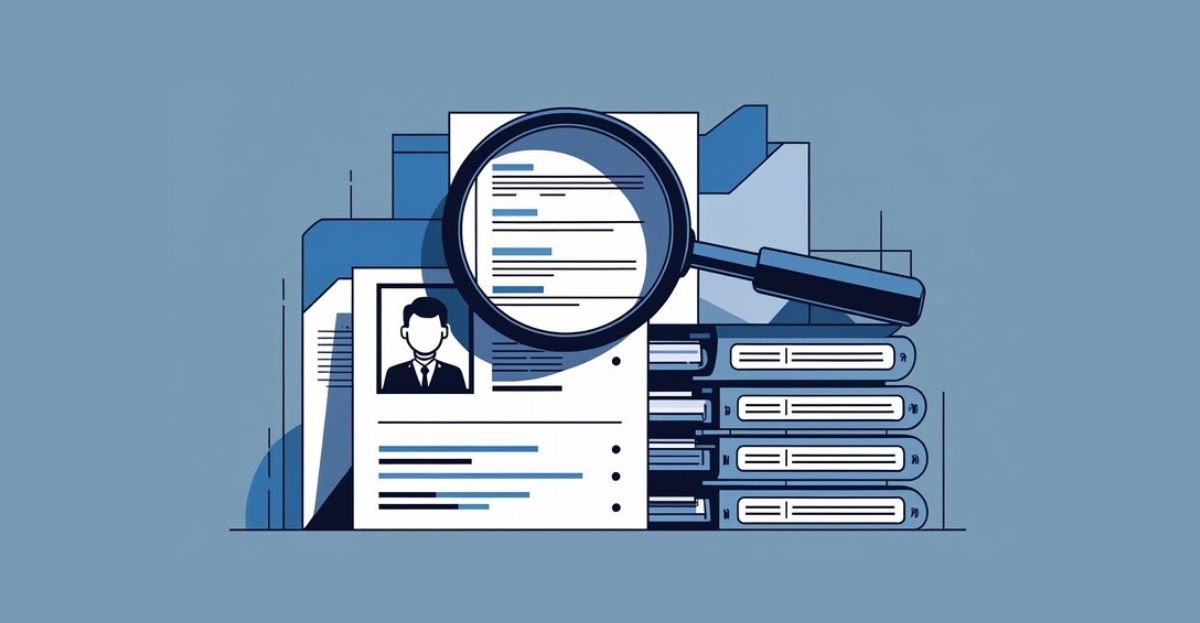Introduction:
In the increasingly complex landscape of organizational hiring, the decision to bring a new employee into a professional environment must extend beyond mere resume evaluation or surface-level interviews. It necessitates a structured, comprehensive process of verification – one that aligns with legal mandates, minimizes institutional risk, and safeguards the collective culture within a workplace.
Employment background checks have thus evolved from being optional administrative exercises to indispensable strategic tools. They serve not only as protective mechanisms against potential internal threats but also as instruments of due diligence, regulatory compliance, and cultural integrity preservation.
This paper examines the multifaceted role that employment background screening plays in maintaining operational stability, ensuring ethical congruence, and fortifying trust within organizations. Through practical case studies and examination of prevailing industry norms, we explore how robust screening processes can be integral to long-term organizational health.
The Future of Hiring: How Technology is changing the Recruitment Landscape
Background Checks as a Risk Mitigation Strategy:
Workplace risk does not always manifest in overt or immediate ways. In many instances, it takes the form of reputational harm, internal theft, employee misconduct, or even regulatory violations stemming from a failure to vet key personnel. While such risks may appear infrequent, their consequences are often profound and far-reaching-ranging from financial loss to legal entanglement and cultural destabilization.
Background checks offer a systemic approach to identifying these latent risks before they enter the workplace. By examining criminal history, employment verification, educational credentials, motor vehicle records, and industry-specific compliance requirements, employers are better equipped to anticipate and avoid personnel-based liabilities.
For example, a logistics firm that hired a warehouse supervisor without conducting a formal background check later discovered-after considerable inventory losses-that the individual had a documented history of workplace theft at a prior facility. This lack of due diligence resulted in losses exceeding $50,000 and created internal discord that disrupted team cohesion. Such avoidable lapses illustrate why background screening should not be viewed as a formality, but rather as a necessary layer of institutional defense.
Preserving Workplace Culture Through Proactive Vetting:
Culture within an organization is a fragile construct—one that takes considerable effort to build and only moments to unravel. The integration of an unsuitable candidate, particularly one with a history of behavioral misconduct, can swiftly compromise team morale and productivity.
A case in point is a mid-sized creative agency that, in an attempt to expedite hiring, onboarded a project manager without full screening. Despite initial impressions of professionalism, within weeks the manager exhibited aggressive communication patterns and discriminatory microaggressions. Upon review, similar behavioral concerns had been documented in previous workplaces.
Had the agency conducted a behavioral reference check or examined previous HR exit records, these patterns might have been identified prior to hiring. The incident underscores the importance of including behavioral indicators in the background screening process, especially in collaborative or client-facing roles where interpersonal conduct directly affects organizational culture.
Diversity & Inclusion In Hiring: Creating A Diverse Workplace
Compliance with Legal and Regulatory Mandates:
In sectors such as finance, healthcare, and education, regulatory frameworks require that organizations perform specific types of background checks to remain in compliance with legal statutes. Failure to adhere to these can result in substantial penalties, reputational damage, and, in some cases, the revocation of operational licenses.
Background screening enables organizations to align with guidelines established by regulatory bodies such as the Fair Credit Reporting Act (FCRA) and the Equal Employment Opportunity Commission (EEOC). It ensures that hiring practices are both non-discriminatory and compliant with the data protection rights of candidates.
Furthermore, comprehensive documentation of screening practices can serve as a protective asset during audits or legal disputes, affirming that the organization has exercised due diligence and adhered to compliance standards in its hiring protocols.
The Role of Screening in Remote Work Environments:
The shift toward hybrid and remote work models has introduced unique challenges to traditional hiring practices. Organizations increasingly find themselves onboarding employees they have never met in person, and who operate in jurisdictions beyond the company’s primary location.
In such contexts, the role of background screening becomes even more critical. Without face-to-face interaction or informal reputation checks through local networks, standardized screening becomes the primary tool to validate a candidate’s credentials and past performance. Identity verification, location-specific criminal background checks, and digital reference interviews now form a foundational part of secure remote hiring strategies.
Trust, Transparency, and the Employee Experience:
Transparency in the screening process not only protects organizations but also contributes positively to the candidate experience. Clearly communicating the nature and purpose of background checks fosters trust and demonstrates organizational commitment to fairness and integrity.
Prospective employees who understand and appreciate these checks are often those who value a safe and structured workplace – further reinforcing a culture of mutual respect and accountability.
Conclusion:
In conclusion, employment background checks are far more than a procedural hurdle in the hiring process. They are a multidimensional safeguard that supports risk mitigation, cultural integrity, regulatory compliance, and trust-building. Organizations that integrate thorough, well-communicated screening protocols into their hiring framework stand to benefit not only from improved personnel outcomes but also from enhanced operational resilience.
As businesses navigate the evolving demands of the modern workforce, background checks must be positioned not as optional gatekeeping tools, but as strategic imperatives essential to sustainable growth and organizational well-being.










